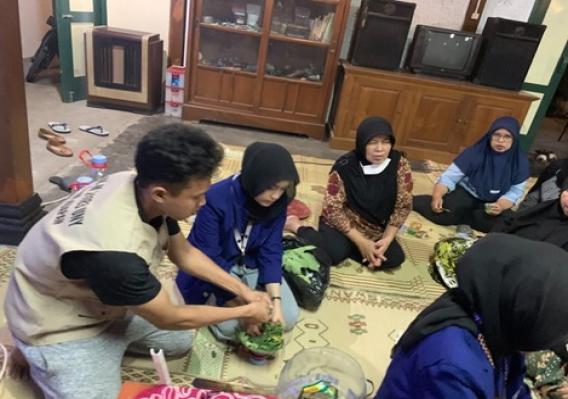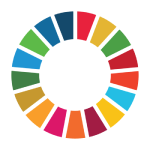UNY KKN Students Invite Dadapan Residents to Innovate with Liquid Fertiliser and Natural Pesticides

The spirit and curiosity coloured an environmentally-friendly agriculture training organised by students of the Community Service Programme (KKN) of UNY. Equipped with knowledge and concern for the environment, the students educated residents of Dadapan, Sidoluhur, Godean, Sleman to produce liquid fertiliser and natural pesticide from simple materials around their homes.
The KKN team, composed of Tandha Katresnan Langgeng, Asa Dhena Ayu Sabella, Rahmad Dao Danial Rekly, Raffi Dinan Cahya Purnama, Rasyid Shalahuddin, Via Adisa, Noor Alya Muflihah Awwal M., Ario Pramuditya Pratama, Khoiri Arif Halimudin, and Fatahilia Nisatul D., joined the community directly. The Head of KKNM 24183 Dadapan, Khoiri Arif Halimudin, explained that this training aimed to reduce farmers’ dependence on chemicals and promote healthier and more sustainable farming practices. “We want to show that environmentally-friendly farming is easy to do, cheap, and still yields good results. Simply with ingredients like papaya leaves, bamboo leaves, boiled potato, and dishwashing soap,” said Khoiri on Thursday, 7 August 2025.
In the training session, Via Adisa and Noor Alya Muflihah Awwal M. acted as the main speakers. Via explained how to make a natural pesticide that is deadly to pests yet safe for humans. One method: crushing papaya leaves until their extract appears, mixing with water and a little dish detergent. Meanwhile Alya detailed the process of making a microbial solution or liquid fertiliser from dried bamboo leaves, boiled potato, salt and water, fermented for two to three days. “This solution can fertilise the soil and replace chemical fertiliser,” she explained. The training was interactive. Residents didn’t just listen; they directly practiced making the fertiliser and pesticide. Maryani, one of the participants, admitted: “I just realised that papaya leaves and bamboo leaves can be useful to this extent. This is very helpful for us.”
The students also provided usage tips — for instance one cap-top per plant for the fertiliser, and advice not to use fertiliser and pesticide simultaneously for optimal results. They also reminded of the importance of storing the solution in a shady place to maintain quality. Through this activity, the students hope it will spark a small movement towards sustainable agriculture in Dadapan. “We not only want to share knowledge, but also instil awareness that innovation can start from home and from simple things,” said Via.
The programme was warmly received by the community and is expected to be the foundation for farmer groups and youth organisations to develop healthier, independent, and environmentally-friendly agriculture.






